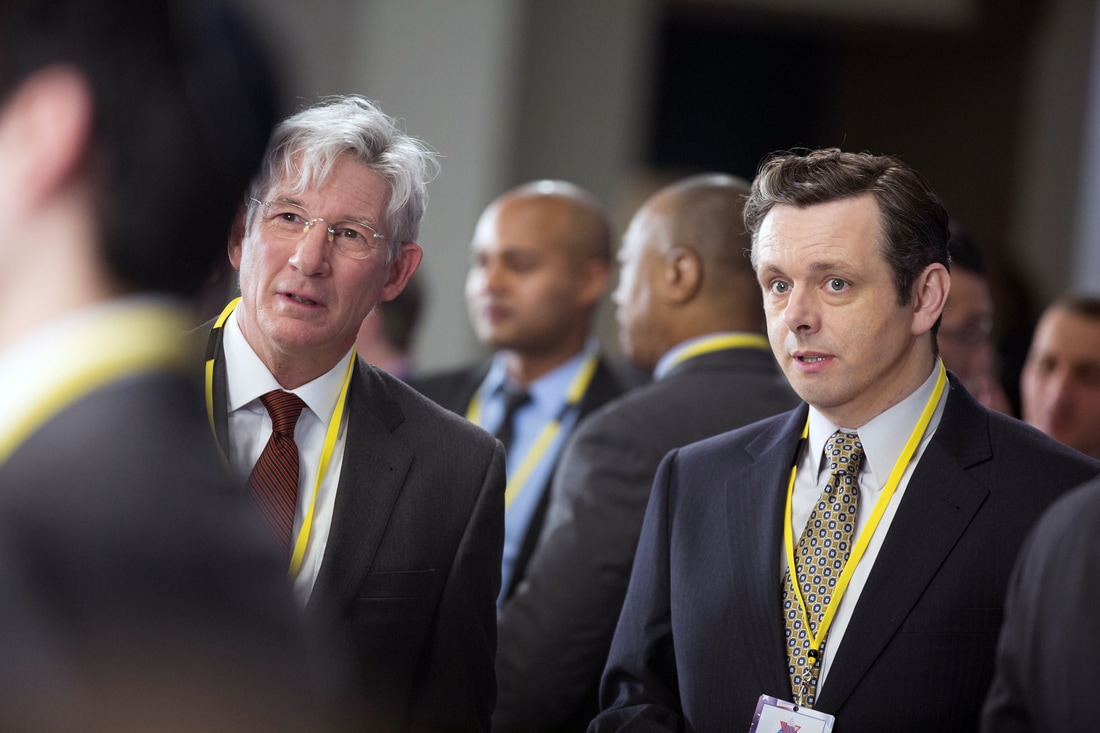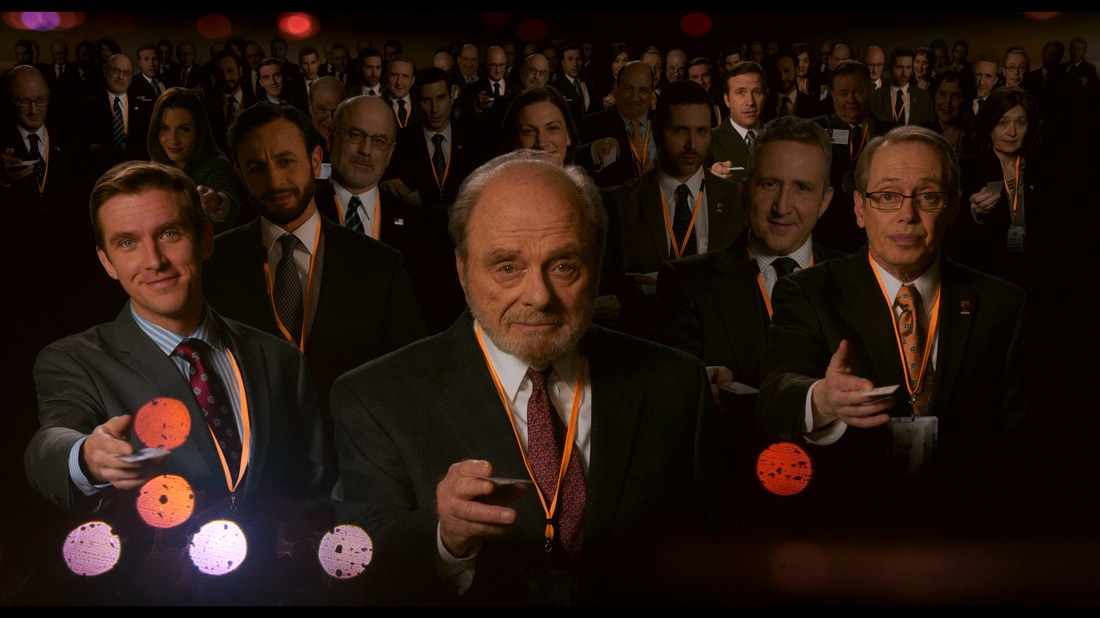|
★★★★½
26 January 2017
A movie review of NORMAN. |
“The opposite of compromise is fanaticism and death,” Micha Eshel (Lior Ashkenazi)
Give Richard Gere an Oscar. His work of late has been superlative, from a corrupt Wall Street titan (ARBITRAGE) to a mentally scarred homeless man (TIME OUT OF MIND) he has been taking risks as an actor with ambitious projects. NORMAN, originally known by the unwieldy, yet interesting, NORMAN: THE MODERATE RISE AND TRAGIC FALL OF A NEW YORK FIXER, has Gere turn uncomfortably obsequious. There is a scene where his titular Norman Oppenheimer insists on buying outrageously expensive shoes (a four figure price tag) for a minor politician. Cringeworthy to witness such subservience, but later the favour pays off when the politician’s star ascends – epitomising the film’s complexity and awkwardly tense atmosphere.
Give Richard Gere an Oscar. His work of late has been superlative, from a corrupt Wall Street titan (ARBITRAGE) to a mentally scarred homeless man (TIME OUT OF MIND) he has been taking risks as an actor with ambitious projects. NORMAN, originally known by the unwieldy, yet interesting, NORMAN: THE MODERATE RISE AND TRAGIC FALL OF A NEW YORK FIXER, has Gere turn uncomfortably obsequious. There is a scene where his titular Norman Oppenheimer insists on buying outrageously expensive shoes (a four figure price tag) for a minor politician. Cringeworthy to witness such subservience, but later the favour pays off when the politician’s star ascends – epitomising the film’s complexity and awkwardly tense atmosphere.
The original title arguably reveals too much of the trajectory of the character. Being in the ballpark of the fate of a protagonist lends the tone a melancholy defeatism, instead of surprise. Norman exudes contradictions, making this an engrossing character study. He is a hustler, but with the best of intentions – which will prove to be his downfall. The old adage, of the road to hell, is very evident here. NORMAN might be argued to be a morality tale or a fable, bar the sense that he is neither immoral nor ill intentioned.
A school of thought in networking suggests that progressing yourself in business is to bring people together altruistically - introductions that further two or more people, with no obvious benefit to the introducer beyond the warm glow of enhancing productivity. Karma is the hoped for outcome. You have not witnessed cinematic networking like this before. Almost THE OFFICE levels of humiliation ensue, without the catharsis of laughter to alleviate.
Norman claims to be a consultant, a business man. There is tenacity and then there’s pestering. He is desperate to meet extreme high-flyer Jo Wilf (Harris Yulin). The executive’s gatekeeper is Bill Kavish (Dan Stevens), who Norman stalks in a clumsy way. The lead is a talker. He talks so much, he talks himself out of his objective. He talks himself into trouble. There is an implication that this perpetual verbiage is to drown out the demons.
The film moves into a political sphere. This is not THE WEST WING or HOUSE OF CARDS slick manoeuvring by the protagonist. Norman grubs his way into circles of influence. Fascinatingly, we ask to what end? Money does not appear to be a motivating factor, though he sneaks into a synagogue to eat food. Is he struggling, or is it enjoyment of the building’s ambience? Norman knows Rabbi Blumenthal (Steve Buscemi), and is making a major promise to him.
There is something unsettling about Norman. Who is he really? Not only mysterious, but when actual personal facts are squeezed out of him, their veracity must surely be questioned. We don’t see his home. Wheeling, dealing and ingratiating on the phone continually, can’t he make his calls where he resides? This character is enigmatically and melancholically flawed. Only visible family is nephew Philip Cohen (Michael Sheen), who tolerates him.
NORMAN has a narrative turn where world peace is in the balance. Is there a coincidence that our lead’s surname is Oppenheimer? Julius Robert Oppenheimer was head of the Manhattan Project that created the nuclear bomb. He famously quoted the Bhagavad Gita, saying, “Now I am become Death, the destroyer of worlds.” Norman is arguably a destroyer in a microcosmic sense, and on a potentially geopolitical level. The density of this movie impresses.
Using these Google Adsense links help us keep Filmaluation free for all film and arts lovers.









